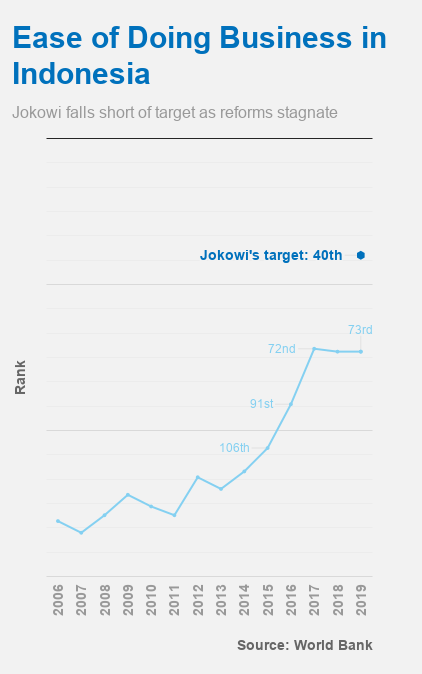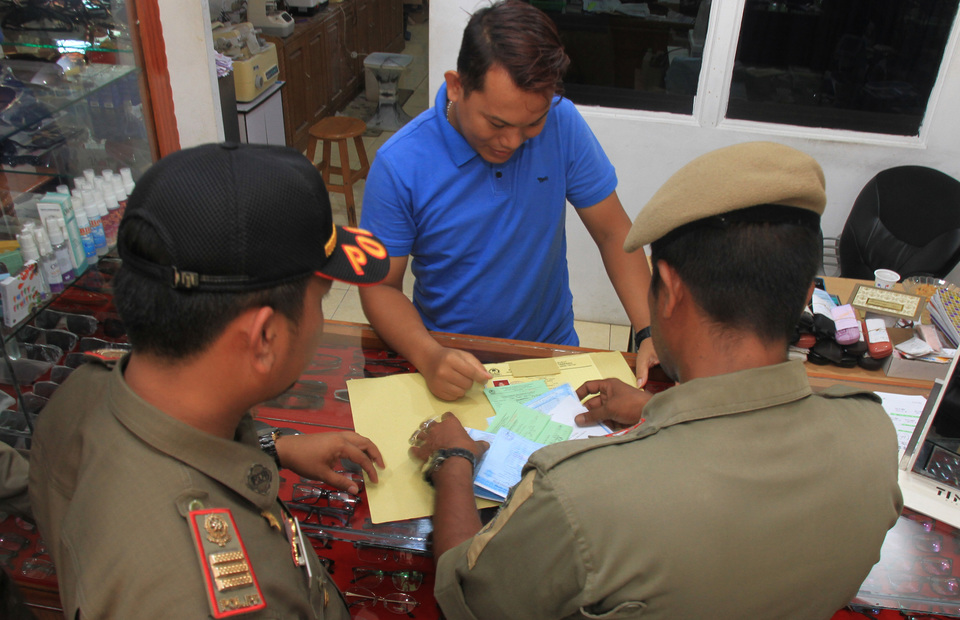Source: Jakarta Globe, October 25 2019
BY: DION BISARA
Jakarta. Indonesia failed to improve its rank in the latest ease of doing business list issued by the World Bank, falling short of President Joko “Jokowi” Widodo’s promise to put the country in the top 40 this year.
The list, titled “Doing Business 2020,” has Indonesia in 73rd place out of 190 economies in the world, the same place as last year.
Jokowi made it his goal to put Indonesia in 40th place in the ranking by the end of his first term.
Poland took 40th place this year, right behind Portugal and Rwanda.
Singapore was second on the list behind New Zealand. Malaysia, Thailand and Vietnam were in 12th, 21st and 70th places respectively.
Jokowi made rapid progress to improve ease of doing business in Indonesia in the first three years of his administration, but little was improved in the past two.

In the past year, the government did make it easier to start a business and apply for electricity subscriptions in Jakarta and Surabaya, two cities that the World Bank assessed for its report.
“Indonesia [Jakarta] made starting a business easier by introducing an online platform for business licensing and replacing hard copies with electronic certificates,” the World Bank wrote in the report.
“Indonesia [Surabaya] improved the reliability of power supply following renovations to and enhanced maintenance of its electrical grid. [It] also made obtaining new electrical connections faster thanks to higher generation capacity,” it said.
Southeast Asia’s largest economy also made it easier for businesses to pay taxes by implementing an online payment and report system.
Trading across borders has also been made easier, as the Customs Office now allows online export declarations in Jakarta and Surabaya.
“Indonesia made enforcing contracts easier by introducing an electronic case management system for judges. This reform applies to both Jakarta and Surabaya,” the World Bank said.
But the cost of enforcing contracts in Indonesia is still among the highest in the world. It can cost up to 74 percent of a $7,000 claim to pay for court, attorney and enforcement fees at the Jakarta District Court.
While employment was not a yardstick for the ranking this year, the report suggested it was one of the areas where Indonesia still lagged behind.
“Among lower-middle-income economies in East Asia and the Pacific, Indonesia is one of the economies with the most rigid employment regulation, particularly on hiring,” the report said.
Rigid employment law, like minimum wage and term-contract, undermines businesses’ flexibility to respond quickly to economic changes, the World Bank said.

